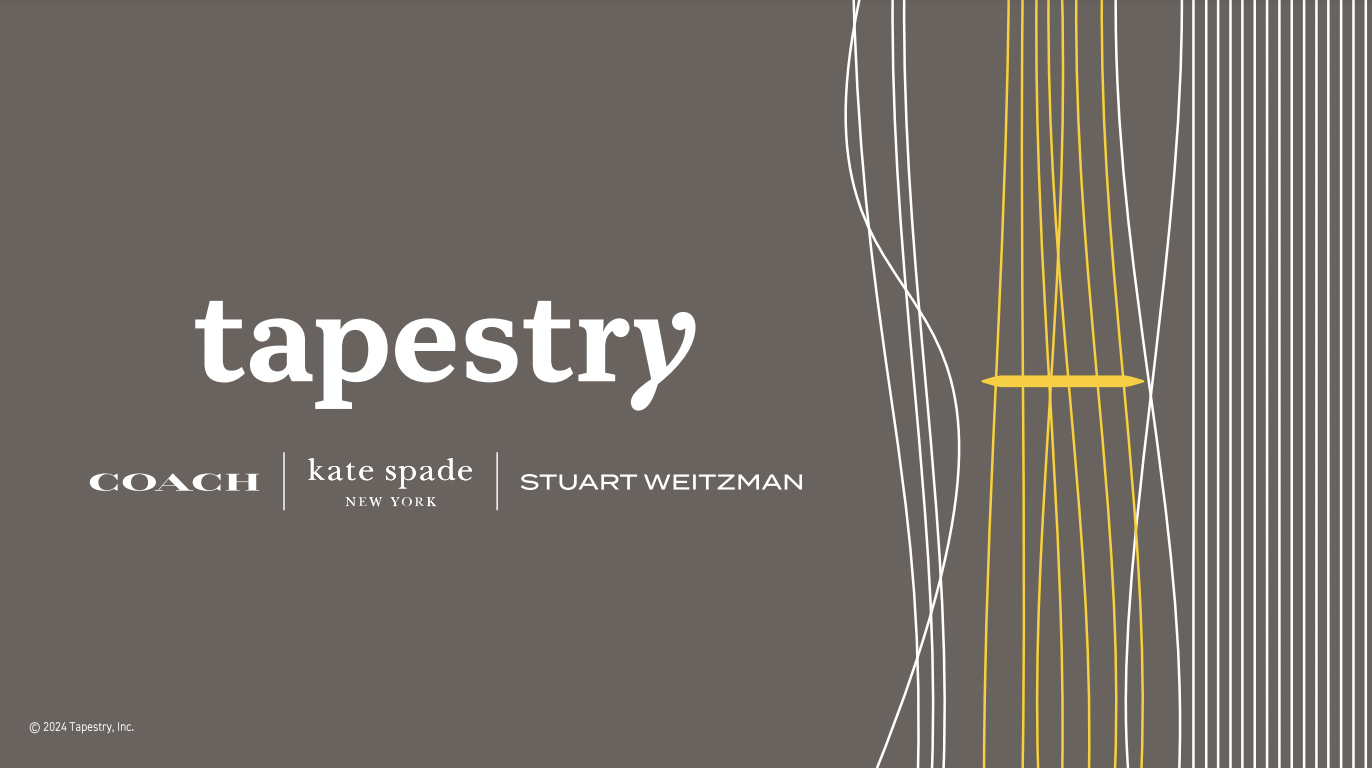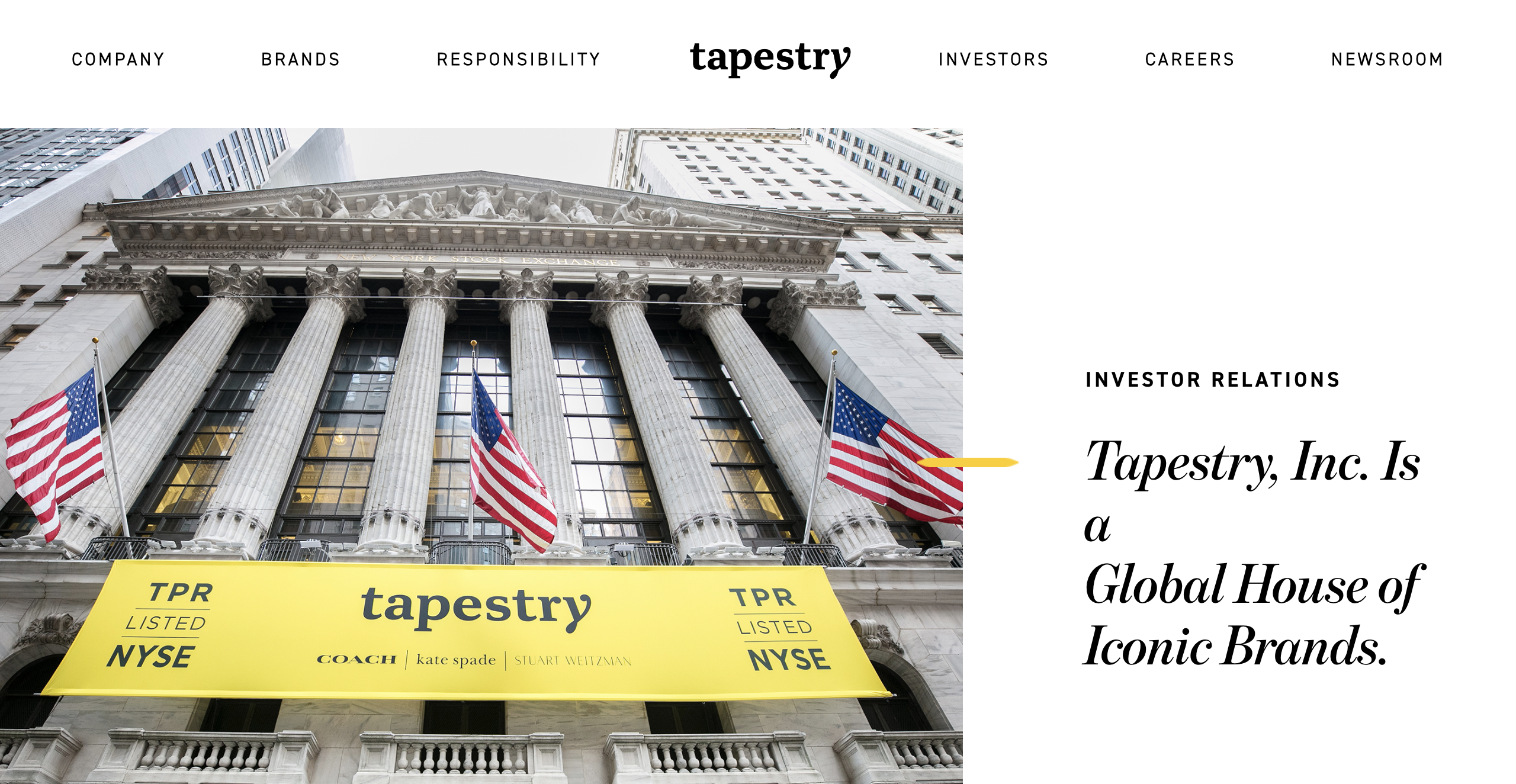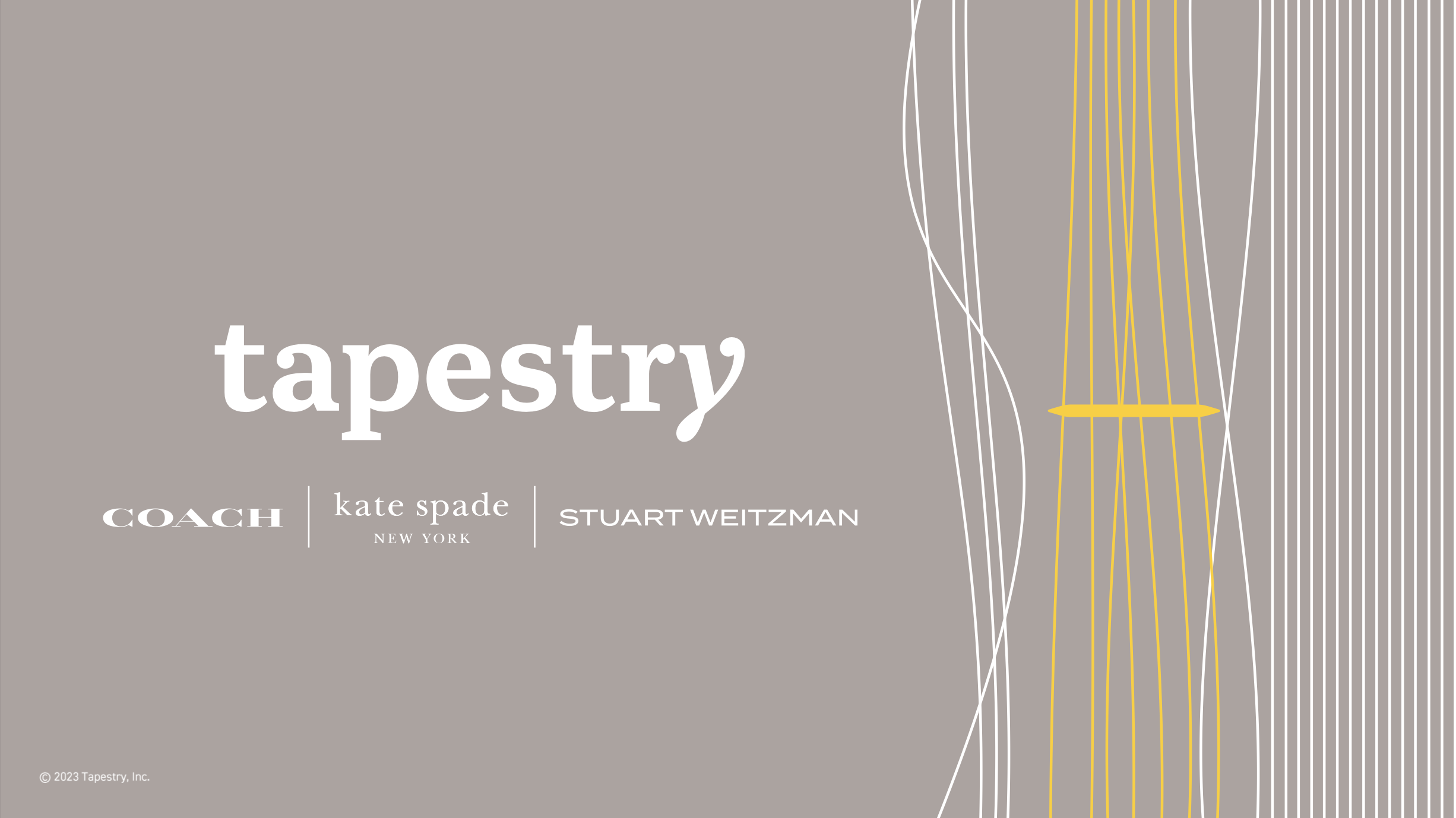Before U.S. markets opened on August 14 (EST), American affordable luxury group Tapestry Inc. (NYSE: TPR), parent company of Coach, Kate Spade, and Stuart Weitzman (which has now been sold), released key financial data for the fourth quarter and full fiscal year ended June 28, 2025:
For the fourth quarter, net sales rose 8% year-on-year to USD 1.72 billion on both a reported and constant currency basis. Net income swung from USD 159 million in the same period last year to a net loss of USD 517 million, mainly due to a pre-tax impairment charge of USD 854.8 million related to the Kate Spade brand. The Greater China region saw an 18% year-on-year increase in sales to USD 273 million, making it the group’s fastest-growing market.
For the full fiscal year 2025, net sales increased 5% year-on-year to USD 7.01 billion on both a reported and constant currency basis. Sales in Greater China also rose 5% year-on-year to USD 1.059 billion. Full-year net income dropped 78% year-on-year to USD 183.2 million. However, excluding all one-off items, including the Kate Spade impairment, Tapestry’s non-GAAP net income stood at USD 1.1342 billion.
Management emphasized that the company has successfully attracted a new generation of global consumers through systematic brand-building, achieving profitability and shareholder return goals set three years ago. The group aims to continue driving long-term compound growth and enhancing shareholder value through creativity, craftsmanship, value, and a flexible operating model.

Tapestry CEO Joanne Crevoiserat stated, “Fiscal 2025 was a breakout year for Tapestry as our systemic approach to brand-building is capturing a new generation of consumers around the world. Our strong growth, capped by our fourth quarter outperformance, reinforces that our strategies are working. Importantly, we achieved bold targets we set three years ago in a dynamic landscape, delivering over $5 in adjusted earnings per share and returning more than $3 billion cumulatively to shareholders. Looking ahead, the creativity, craftsmanship, and compelling value we offer at scale – combined with the agility of our operating model – position us to drive compounding long-term growth and shareholder value.”
Earlier this month, the group announced the completion of the sale of its footwear brand Stuart Weitzman. The buyer is Caleres, a market-leading, consumer-driven footwear brand portfolio company. The deal was valued at USD 120.2 million. After excluding USD 11.5 million in cash held by the brand at closing, the net acquisition price was USD 108.7 million.
Following the divestiture of Stuart Weitzman, Tapestry stated that management would be able to devote more time and resources to boosting Coach’s sales and turning around Kate Spade’s performance.
In the fourth quarter, Coach’s revenue grew 13% year-on-year on a constant currency basis, while Kate Spade’s revenue declined 13%.
“Coach’s strong performance continues,” said Joanne Crevoiserat in an interview. “We’re significantly outperforming the industry, and doing so with exceptionally high margins.” She added that Coach saw accelerated sales growth during the quarter. As for Kate Spade, she noted, “The brand transformation is underway.”

As of June 28, key Q4 and full-year fiscal 2025 financial data for Tapestry Inc. are as follows:
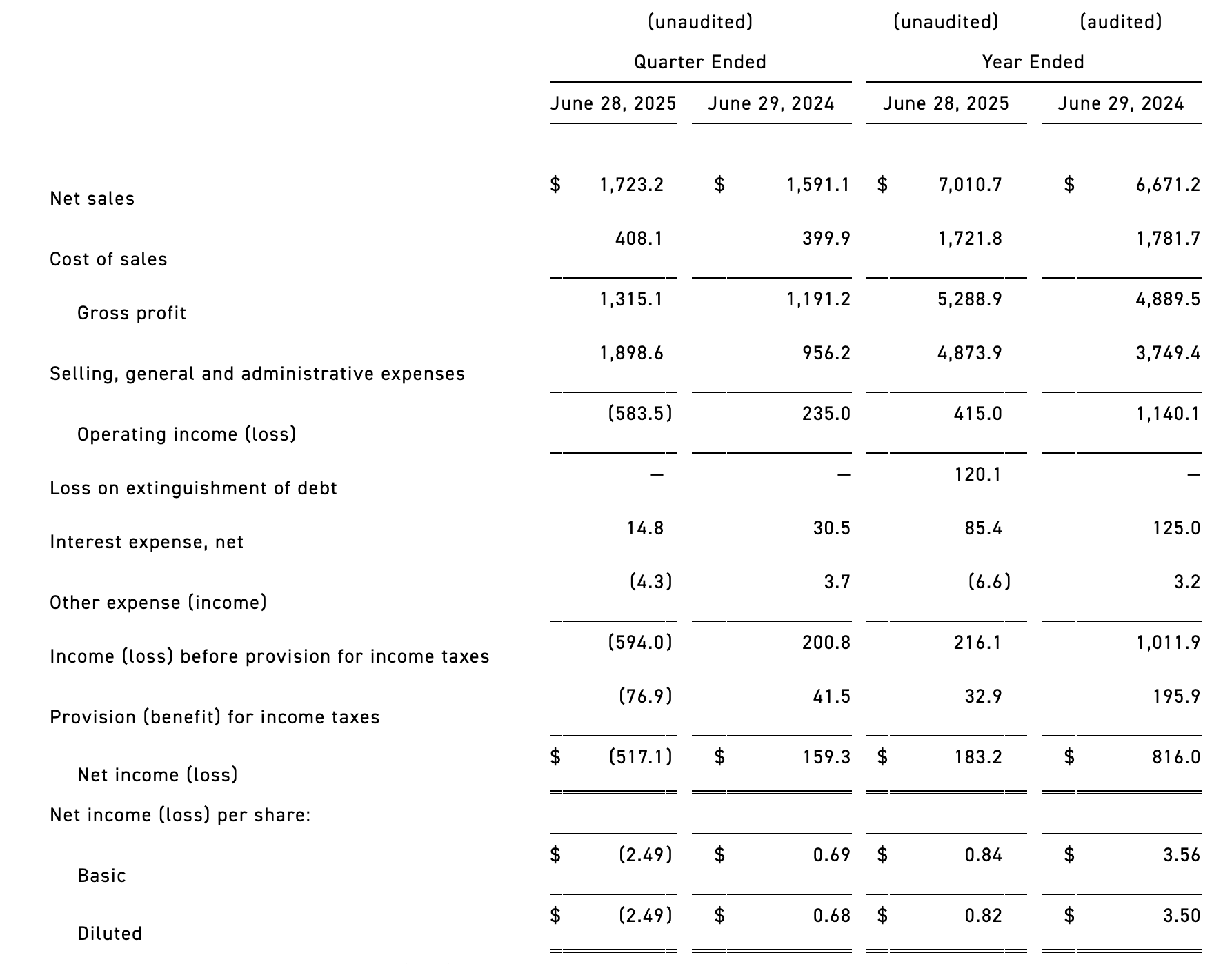
— By Brand and Market
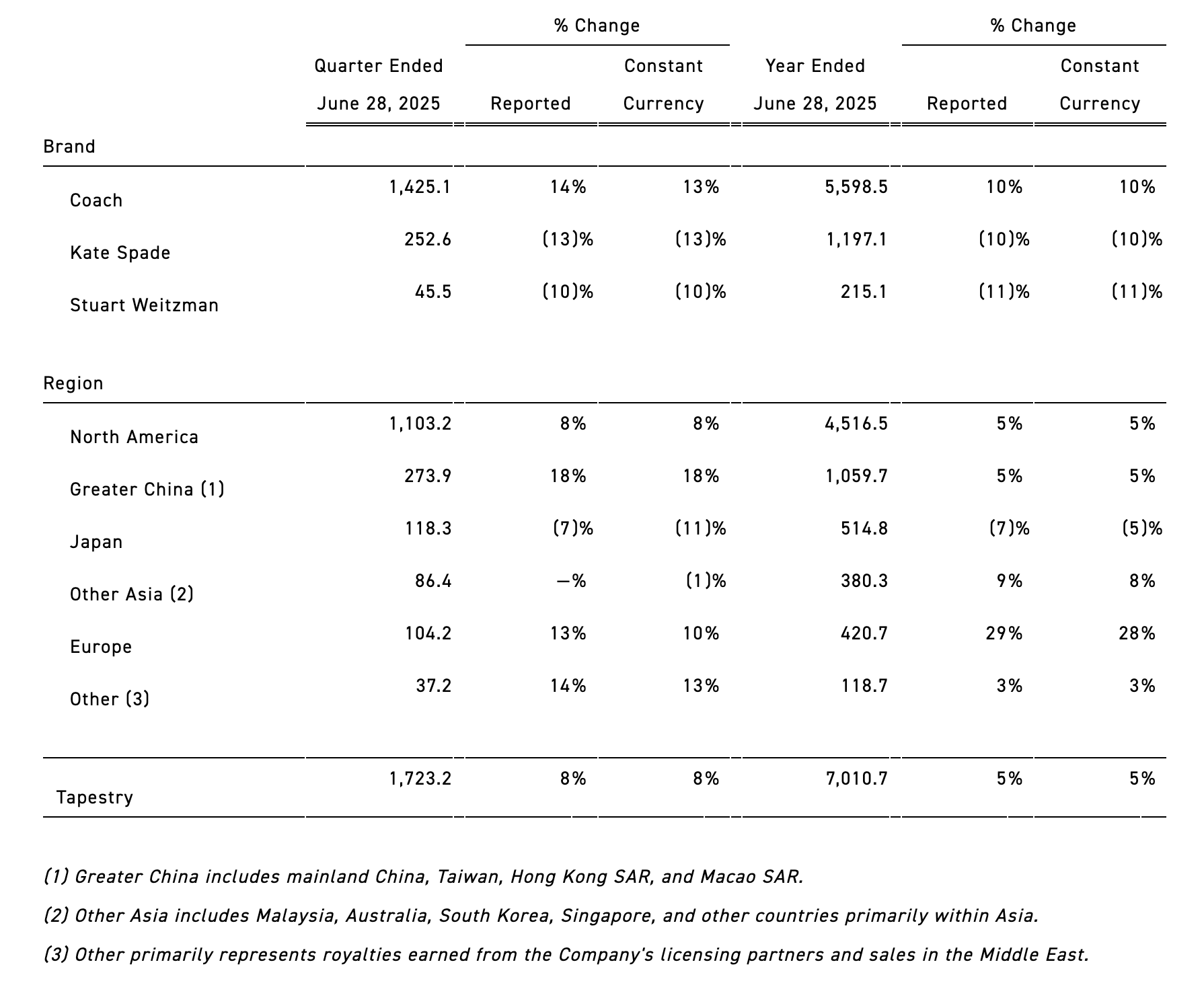
Tapestry CFO Scott Roe noted in an interview that tariffs are expected to impose approximately USD 160 million in additional costs during this fiscal year. Roe described the tariffs as “new information” that will have a “significant” impact this fiscal year. However, he added that the company is “confident in its ability to absorb the long-term impact of tariffs.” He also noted that the company is taking a “cautious” approach to its fiscal outlook, given the market conditions.
The group expects revenue for the fiscal year ending June to approach USD 7.2 billion, slightly above analysts’ forecast of USD 7.12 billion. This projection excludes revenue from the Stuart Weitzman footwear brand, which Tapestry has now divested due to its minimal contribution to group sales. Excluding that brand, revenue is expected to grow at a mid-single-digit percentage rate year-on-year.
Following the earnings release, Tapestry’s share price fell 17% in pre-market trading after the company cut its full-year profit forecast due to the impact of tariffs, falling short of market expectations. By the close of trading on August 14, Tapestry shares were down 15.71% from the previous day to USD 95.69 per share. However, year to date, the stock has risen approximately 74%, buoyed by strong Coach handbag sales among younger consumers.
|Source: Official Financial Report, Bloomberg, Reuters
|Image Credit: Official Website
|Editor: LeZhi

